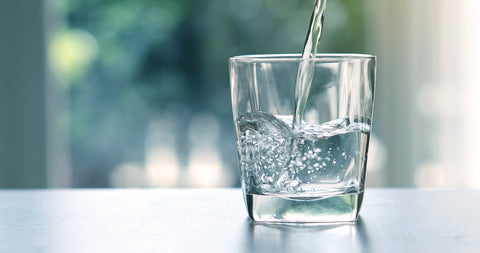
Coconut Water & Breastfeeding: Staying Hydrated
The ability of the human body to produce breast milk is one that is not just amazing – it is scientifically documented as extremely beneficial for both mother and child. Breast milk is the best possible food for an infant between birth and six months of age, and even more benefits can be reaped by babies who continue to receive breast milk until the one-year mark and beyond. Pediatricians unanimously agree that as long as a mother is capable of comfortably breastfeeding and there are no health concerns that are hindering or preventing the practice, it is the best choice for maintaining the baby’s health and is great for hers, as well.
However, the production of adequate amounts of breast milk also depends on the mother’s body to keep up with her baby’s demand. The general rule of thumb is that the more often and the longer a baby nurses, the more breast milk the mother’s body will produce. Numerous factors can impact this delicate equation, though, one of which being adequate hydration and nutrition. If a woman’s body isn’t being given what it needs to create an adequate supply of breast milk it may fail to do so – or may remove what it needs from the woman’s own body, causing major health concerns.
The Importance of Hydration for Lactation
What is breast milk made from? While the exact composition of breast milk varies from person to person and even with the time of day, approximately 87% of the substance is water.
What does this mean for mothers? Since breast milk is produced by the body, that high water content is coming directly from the water content of the mother’s body. Regardless of how often a baby feeds, that represents a significant loss. For mothers who are nursing twins or simply have a baby with a big appetite, the loss is one that can take a major toll on the body – especially if not offset with proper hydration and nutrition.
Proper water balance in the body is imperative for normal, healthy bodily functions. However, the losses sustained during lactation can pose a serious problem for women who are trying to maintain this balance. The only solution is to supplement the amount of water or nutritive, hydrating drinks being consumed each day to restore balance to the body’s water content.
Why Water Isn’t Likely Enough

Drinking more water while breastfeeding isn’t a bad idea. It will increase bodily hydration levels and help to restore balance to the body which is compromised through breastfeeding. However, for many women, plain water is not sufficient for restoring both bodily hydration and the nutrients and energy being lost while creating and supplying breast milk for their baby.
While many modern water brands add minerals to their water for increased health benefits. Few contain high enough levels of electrolytes to actually improve both hydration and health. It is important to remember that water is not all that is lost from the body during milk production; nutrients are also diminished, even if they are taken directly from the mother at her own health risk.
Water also does not increase energy outside of providing hydration for the mother. Most women find themselves fatigued – both mentally and physically – during breastfeeding, so consuming food and drinks that boost energy is essential to keeping up with the demands of their nursing child and their everyday life. Water restores hydration but does not replenish energy, while electrolyte-containing beverages have been shown to do so. This makes electrolyte drinks a smart choice for nursing mothers.
Electrolyte Drinks While Breastfeeding – Choosing the Right One
One qualm many nursing mothers have when it comes to selecting an electrolyte-enriched beverage to consume during nursing is the idea that it may negatively impact their health or their child’s. Yes, it will boost their energy. Yes, it will restore hydration and balance to the body’s water table. But are there artificial chemicals, refined sugars, and other substances in the drink that can either be transferred to the breast milk or harm the mother upon consumption?
This is where many commercial energy drinks and electrolyte preparations fall short. They contain either chemicals and stimulants that are potentially hazardous to the health of a nursing baby – such as high levels of caffeine and other substances – or far too much sugar to be part of a healthy, balanced diet for the mother.
Some natural sources of nutrients that are preferable to these chemical concoctions include fruit juices and coconut water. Coconut water – the “juice” from a ripe coconut – is a low-calorie, low-sugar, highly nutritive substance that is high in natural electrolytes. This makes it a perfect choice for re-hydration beverages – and a great choice for nursing mothers.
Finding Coconut Water-Based Beverages For Hydration
While an all-natural mixture of coconut water and real fruit juice is one of the best ways to get electrolytes, important nutrients, crucial hydration, and a little bit of flavor women often crave during breastfeeding, it isn’t always easy to come by. What new mom has time to whip up a blend of these juices in her own kitchen every day – much less the energy to do so with a baby constantly crying for sustenance. Finding a premade solution – that is still just as nutritive as a homemade one – is important for busy moms.
That’s why drinks like all-natural GREATER THAN sports drinks are an excellent choice. They contain nothing more than the natural substances a nursing body needs – nutrient-dense coconut water and fruit juice – and nothing unnecessary. Best of all, they are conveniently packaged, available for delivery, and come in a variety of flavors – all designed to help restore the body’s water balance.